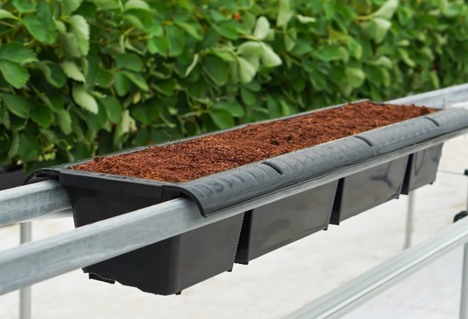Economical and Efficient Solutions in Wholesale Nursery Pots

The horticulture industry thrives on innovation and efficiency, especially in the realm of wholesale nursery pots. These pots are fundamental in nurturing plants from seedlings to saleable sizes. This article delves into the economical and efficient solutions available in the market for wholesale nursery pots, highlighting how these solutions benefit growers and the environment.
The Role of Wholesale Nursery Pots in Modern Horticulture
Benefits of Using Nursery Pots in Large-Scale Plant Production
Nursery pots are crucial in the horticultural sector for several reasons:
- Ensuring Plant Health and Growth: They provide an ideal environment for the root system, essential for healthy plant development.
- Flexibility in Transportation and Selling: Easily transportable pots make the distribution of plants more efficient, catering to a broader market.
Challenges Faced by Nurseries
Nurseries encounter several challenges, including:
- Cost Implications: The expense of pots can significantly impact overall profitability.
- Environmental Concerns: The sustainability of pot materials is a growing concern in the industry.
Economic Aspects of Wholesale Nursery Pots
Cost-Effective Materials and Design
The choice of material and design in nursery pots can greatly affect their cost-effectiveness:
- Plastic vs. Biodegradable: Plastic pots are cheaper but less environmentally friendly, whereas biodegradable pots offer sustainability at a higher cost.
- Design Features: Designs that require less material or are easier to manufacture can reduce costs.
Bulk Purchasing and Its Advantages
Buying in bulk can significantly reduce costs:
- Lower Per-Unit Cost: Economies of scale make each pot cheaper.
- Supplier Relationships: Establishing long-term relationships with suppliers can lead to better deals and terms.
Efficiency in Wholesale Nursery Pot Use
Innovations in Pot Design for Enhanced Efficiency
Innovative designs have revolutionized pot efficiency:
- Self-Watering Pots and Stackable Designs: These innovations save time and space, reducing labor costs.
- Impact on Labor and Time: Efficient designs can significantly decrease the time spent on plant maintenance.
Recycling and Reusability: A Step Towards Sustainability
Recycling and reusing pots offer environmental and economic benefits:
- Recycling Methods: Exploring ways to recycle pots can reduce waste.
- Benefits of Reusing Pots: Reusing pots saves money and reduces environmental impact.
Technological Integration in Nursery Pot Production
Automation in Pot Manufacturing
Automation has transformed pot manufacturing:
- Changes in Production Landscape: Automated production lines increase output and consistency.
- Impact on Cost and Efficiency: Reduced labor costs and increased efficiency lower the overall cost of pots.
Technology in Pot Design and Functionality
Technological advancements have led to smarter pots:
- Smart Pots with Monitoring Features: These pots can monitor soil moisture, nutrient levels, and more.
- Enhancing Plant Growth: Technology aids in creating optimal growing conditions, potentially increasing plant quality.
Future Trends in Wholesale Nursery Pots
Eco-Friendly and Sustainable Solutions
The future of nursery pots lies in sustainability:
- Sustainable Materials: Research into new, eco-friendly materials is ongoing.
- Shift Towards Environmentally Friendly Practices: The industry is increasingly focusing on reducing its carbon footprint.
Market Trends and Consumer Preferences
Understanding market trends is crucial:
- Current Trends: A look at what’s popular in the pot market.
- Adapting to Changes: How nurseries can stay ahead by adapting to these trends.
Conclusion
In conclusion, the world of wholesale nursery pots is evolving with a focus on economical and efficient solutions. From cost-effective materials to technological innovations, these advancements not only aid in plant growth but also address environmental concerns. The future of nursery pots looks promising, with a strong emphasis on sustainability and efficiency.







